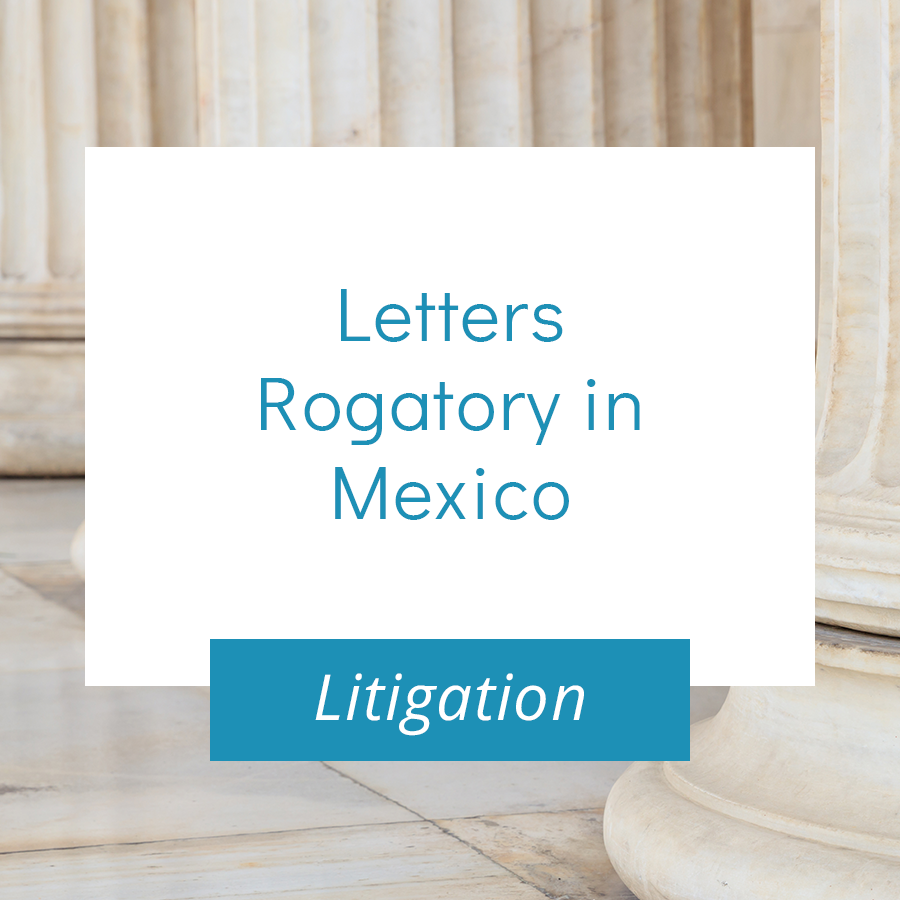What You Required to Learn About Letters Rogatory in Cross-Border Cases

Definition of Letters Rogatory
Letters rogatory are formal requests made by a court in one jurisdiction to the suitable judicial authority in one more jurisdiction, seeking assistance in obtaining evidence or serving legal documents. This legal instrument is specifically significant in cross-border situations where straight interaction between judicial authorities is either impractical or not allowed because of legal restraints.
Commonly, letters rogatory are used in criminal and civil issues, enabling courts to request the collection of statement, papers, or other essential products from outside their jurisdiction. When a court determines the demand for evidence that can not be collected domestically, the process begins. Following this, the requesting court prepares a formal letter detailing the particular details or activity needed, ensuring compliance with both territories' lawful standards.
When submitted, the recipient court examines the demand and conducts the required process based on its own regulations (Letters rogatory). The performance of letters rogatory counts greatly on global treaties and arrangements, which facilitate collaboration among countries. This device underscores the significance of common legal support in supporting justice across boundaries, making sure that lawful processes are not hindered by geographical limits
Objective and Value
Facilitating international participation, letters rogatory offer a critical objective in the world of cross-border legal process. They work as official requests from a court in one jurisdiction to a court in an additional, seeking aid in gathering evidence or conducting assessments significant to an instance. This system is crucial when a party needs to acquire statement or papers located outside their very own territory, making sure that lawful procedures are not hindered by geographical borders.
The relevance of letters rogatory can not be overstated, as they play a crucial role in maintaining the stability of legal systems throughout nations. By providing an organized method for worldwide collaboration, these letters assist to keep respect for each and every nation's sovereignty while helping with the exploration process crucial for fair trials. They additionally guarantee that evidence is gathered in a way that abides by the legal criteria and treatments of the requesting territory.

Process of Issuing Letters Rogatory
The process of issuing letters rogatory includes numerous vital steps that should be diligently complied with to ensure conformity with both global and domestic lawful requirements. A demand for support need to be prepared, laying out the certain evidence or testimony sought from the international jurisdiction. This demand needs to clearly state the realities of the instance, the importance of the evidence, and the legal basis for the demand.
When the demand is drafted, it is normally sent to a domestic court or relevant authority for authorization. The court might assess the request to guarantee it sticks to procedural requirements and aligns with global treaties or conventions governing shared legal support.
Upon approval, the demand is formally translated into the language of the international territory, as required - Letters rogatory. Consequently, the letters rogatory are sent out to the proper foreign authority, typically via polite channels or central authorities designated for such functions
Difficulties and Limitations
In cross-border lawful proceedings, browsing the challenges and restrictions of letters rogatory can considerably influence the effectiveness of proof gathering. One significant obstacle is the varying lawful requirements and step-by-step requirements throughout jurisdictions. Various countries might have distinct policies regarding the admissibility of proof, which can make complex the execution of letters rogatory.
Additionally, the moment required to refine these demands can be substantial. Delays in redirected here the international jurisdiction might hinder prompt accessibility to crucial evidence, which can endanger the general situation. Language obstacles additionally pose substantial obstacles; ensuring accurate translation of records and testimony is important yet can introduce possible false impressions and additional difficulties.
Moreover, there is usually a lack of reciprocity in the therapy of letters rogatory. These obstacles demand careful preparation and factor to consider by lawful professionals involved in cross-border lawsuits.
Best Practices for Legal Professionals
Reliable techniques for lawyers browsing letters rogatory in cross-border cases can substantially enhance the possibility of successful evidence celebration. First, it is vital to extensively recognize the legal frameworks and procedural requirements of both territories included. This understanding will aid in composing a precise and clear request that straightens with the obtaining nation's lawful standards.
Following, developing solid communication with international lawful representatives can assist in the procedure. Involving neighborhood counsel who recognize with the subtleties of their legal system can assist and offer very useful understandings browse possible pitfalls. It is also helpful to consist of detailed details concerning the proof sought, making certain that it is needed and relevant for the instance.

Final Thought
In recap, letters rogatory work as a vital mechanism for getting proof in cross-border legal issues. Their importance hinges on assisting in global cooperation while respecting nationwide sovereignty. The procedure of releasing such requests involves navigating complicated legal frameworks and possible polite difficulties. Sticking to best techniques improves the chance of successful outcomes. Inevitably, recognizing the subtleties of letters rogatory is crucial for lawful specialists involved in international litigation.
Letters rogatory play an important duty in facilitating the exchange of proof throughout worldwide boundaries, serving as a bridge in between inconsonant legal systems. As we explore ideal methods and the subtleties of this lawful mechanism, it comes to be clear that proficiency of letters rogatory is vital for reliable worldwide legal technique.
In cross-border legal proceedings, browsing the challenges and constraints of letters rogatory can significantly impact the read this article effectiveness of evidence celebration.Reliable techniques for lawful professionals browsing letters rogatory in cross-border situations can considerably boost the likelihood of effective evidence event.In recap, you can find out more letters rogatory serve as an essential device for acquiring proof in cross-border legal matters.